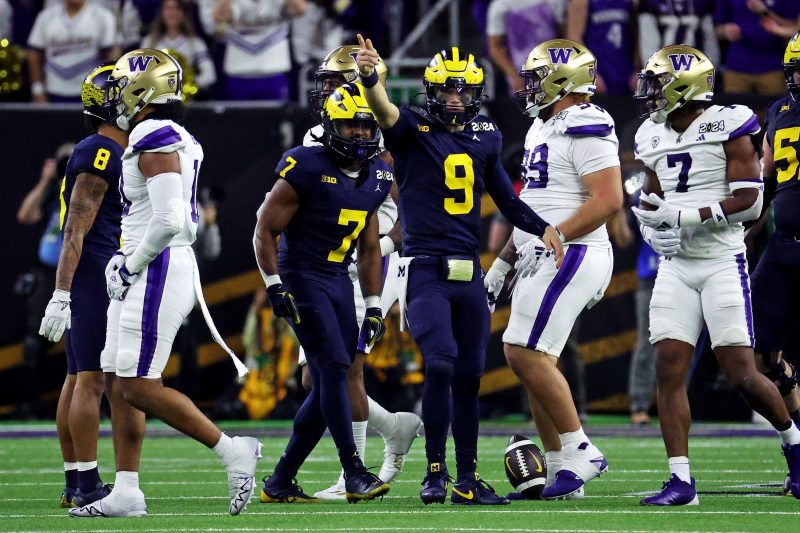ESPN and the College Football Playoff have agreed to a massive new rights deal that will keep the postseason format on the network through the 2031 season, according to a report from The Athletic.
ESPN and the playoff originally agreed in 2012 to a 12-year deal worth $5.64 billion, or roughly $470 million annually. That agreement expires after the 2025 season. According to The Athletic, the annual payout will be $608 million for the final two years of the original deal.
How much is ESPN’s deal with the College Football Playoff worth?
According to the report, the extension starting for the 2026 season is for six years and $7.8 billion and makes ESPN the continued broadcast partner for the 12-team playoff. The expanded format will begin during the 2024 season.
That makes the new agreement worth substantially more money for half the duration of the original deal, illustrating the outstanding success of the playoff and the increasing interest in the new format.
What this means for the playoff
While there are still items to be ticked off the to-do checklist, the completion of a new deal with ESPN removes one major hurdle before advancing into the 12-team era.
Before the new deal goes into effect, however, the playoff still must work through the nuts and bolts of the 12-team arrangement that was created before the dissolution of the Pac-12, which will occur after the end of this academic year.
The biggest unknown is how the playoff will approach the new Power Four and the number of at-large bids given to non-conference champions. While the playoff had indicated a desire to use a six plus six plan with the six top-rated conference winners and six at-large bids, that should shift to a five plus seven model.
What the new deal means for other networks
Fox was reportedly the other major network in the market for the expanded playoff. Adding the postseason would’ve joined the networks relationship with the Big Ten, which will feature an even more diverse collection of games with the league’s upcoming addition of Southern California, Washington, UCLA and Oregon.
That ESPN was able to retain the playoff shows the network’s immense clout in the world of college athletics. The network has owned the rights to the format since the playoff’s debut a decade ago and will remain the biggest player in the market, to the point where ESPN has and will continue to play an outsize role even in determining the makeup of the major conferences.
When it comes to the next two seasons until the new deal goes into effect, the network already owns the rights to the playoff quarterfinals, semifinals and championship game. Beginning next season, ESPN will add in the first-round games.
How the 12-team playoff will work
Once the five plus seven plan is made official, the selection committee will be tasked with picking the five best conference champions along with seven at-large bids. With just four power leagues, this method still ensures that at least one Group of Five conference winner makes the playoff.
The first round will be held at the home venues of the higher-rated teams. The four highest-ranked conference champions will receive a first-round bye to the quarterfinals, where they will be the home team. From there, the playoff will look identical to the four-team format that began with the semifinals.
Going off the College Football Playoff final rankings from last December, here’s how the playoff would’ve looked this past season had the 12-team field been in effect. (The playoff may decide to alter rankings slightly to avoid first-round rematches from the regular season, such as the one that would’ve taken place between Penn State and Ohio State.)
First round
No. 12 Liberty at No. 5 Florida State
No. 9 Missouri at No. 8 Oregon
No. 11 Mississippi at No. 6 Georgia
No. 10 Penn State at No. 7 Ohio State
Quarterfinals
No. 1 Michigan vs. No. 9 Missouri or No. 8 Oregon
No. 2 Washington vs. No. 10 Penn State or No. 7 Ohio State
No. 3 Texas vs. No. 11 Mississippi or No. 6 Georgia
No. 4 Alabama vs. No. 12 Liberty or No. 5 Florida State

